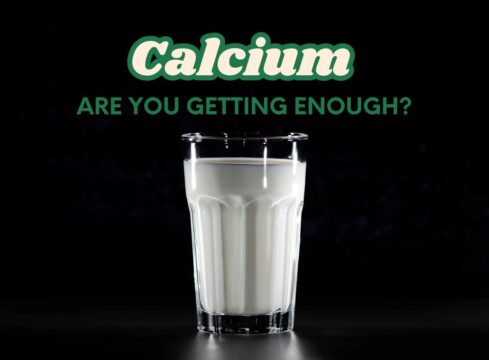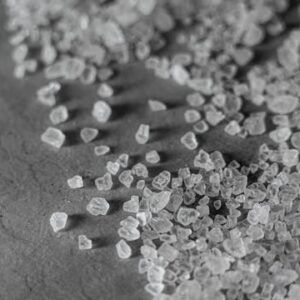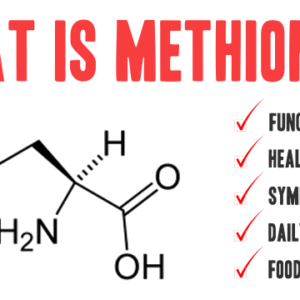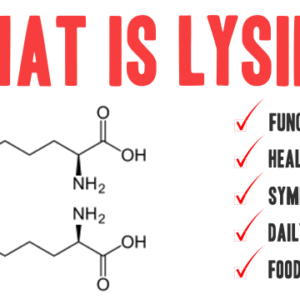What Is Calcium?
Calcium is the most abundant mineral in the human body, with about 99% stored in bones and teeth, where it provides structural support and strength. The remaining 1% circulates in the blood and soft tissues, where it plays vital roles in muscle contraction, nerve transmission, vascular function, and hormone secretion.
Because the body cannot produce calcium, it must be obtained through diet or supplementation.
Why Is Calcium Important?
1. Bone and Teeth Health
Calcium is a primary component of hydroxyapatite, the mineral matrix that strengthens bones and teeth. It is essential during childhood, adolescence, and early adulthood when bone mass is developing and remains important throughout life to reduce the risk of osteoporosis.
2. Muscle Contraction
Calcium is required for muscles—including the heart—to contract. It interacts with proteins like troponin and tropomyosin within muscle fibers to initiate and regulate contraction.
3. Nerve Transmission
Nerve cells rely on calcium to release neurotransmitters. Adequate calcium levels help maintain proper signaling between the brain and body.
4. Blood Clotting
Calcium activates several proteins involved in the coagulation cascade, which is essential for proper blood clotting during injury.
5. Hormonal Secretion
Calcium is a key regulator of parathyroid hormone (PTH) and calcitonin, both of which help maintain calcium homeostasis in the body.
Recommended Daily Intake of Calcium
| Age Group | Recommended Intake |
|---|---|
| Children (1–8 years) | 700–1,000 mg/day |
| Adolescents (9–18 years) | 1,300 mg/day |
| Adults (19–50 years) | 1,000 mg/day |
| Adults over 50 | 1,200 mg/day |
| Pregnant/Lactating Women | 1,000–1,300 mg/day |
Note: Needs may vary based on activity level, health status, and gender.
Best Dietary Sources of Calcium
Dairy Products
Milk
Yogurt
Cheese
Leafy Greens
Kale
Collard greens
Bok choy
Fish with Edible Bones
Sardines
Canned salmon
Fortified Foods
Calcium-fortified plant milks (almond, soy, oat)
Fortified cereals and juices
Others
Tofu (set with calcium)
Almonds
Sesame seeds
Factors That Affect Calcium Absorption
Vitamin D: Enhances calcium absorption in the gut.
Phytic Acid & Oxalates: Found in spinach, beans, and whole grains—can bind calcium and reduce bioavailability.
Caffeine & Sodium: Excessive intake may increase calcium excretion.
Age & Hormones: Older adults and postmenopausal women may absorb less calcium due to hormonal changes.
Calcium Deficiency (Hypocalcemia)
Causes:
Inadequate intake
Poor absorption (e.g., celiac disease)
Vitamin D deficiency
Kidney disorders
Certain medications (e.g., corticosteroids)
Symptoms:
Numbness and tingling in fingers
Fatigue
Osteopenia or osteoporosis
Abnormal heart rhythms in severe cases
Calcium Supplements: Should You Take Them?
Calcium supplements can be helpful for individuals who:
Cannot meet needs through diet
Are lactose intolerant
Are at high risk of osteoporosis
Common types:
Calcium carbonate: Best with meals
Calcium citrate: Better for those with low stomach acid or older adults
Caution: Excessive intake (over 2,500 mg/day for adults) may lead to kidney stones, constipation, or interfere with the absorption of other minerals (iron, zinc).
How to Support Optimal Calcium Absorption
Ensure adequate vitamin D through sun exposure or supplementation
Engage in weight-bearing exercise to stimulate bone remodeling
Limit excessive caffeine, alcohol, and sodium
Eat a balanced diet with a variety of calcium-rich foods
Conclusion
Calcium is essential not just for strong bones and teeth, but also for vital functions like muscle contraction and nerve communication. Meeting your daily calcium needs through a nutrient-rich diet—and supplements when necessary—can prevent long-term complications like osteoporosis and support total body health.















